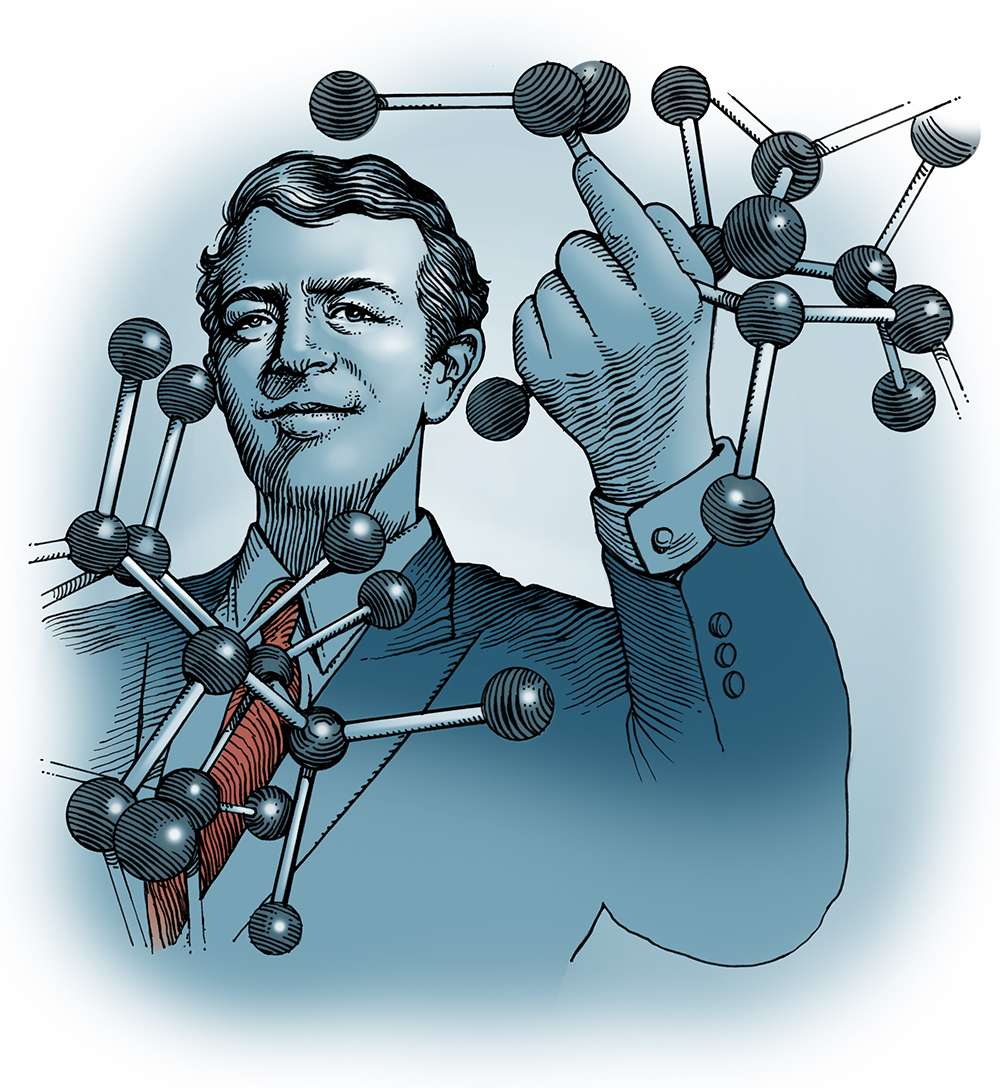Thanks to which scientist the myth of vitamin C emerged?
Pauling, who made his mark in history as the person who won two Nobel prizes, has been the biggest defender of vitamin C on Earth since 1968. Who is Linus Pauling?

There is a widespread belief that vitamin C is a remedy for respiratory diseases such as colds and flu. However, this belief has not been fully answered in scientific research for decades. While some studies have indeed shown that this vitamin may be effective in curing the disease, other studies have concluded that it has no effect.
Linus Carl Pauling (February 28, 1901 – August 19, 1994) was an American chemist, biochemist, chemical engineer, peace activist, author, and educator. He published more than 1,200 papers and books, of which about 850 dealt with scientific topics. New Scientist called him one of the 20 greatest scientists of all time, and as of 2000, he was rated the 16th most important scientist in history. For his scientific work, Pauling was awarded the Nobel Prize in Chemistry in 1954.
The myth of vitamin C has a history of nearly 50 years. The emergence of this legend was thanks to a scientist named Linus Pauling. Pauling, who made his mark in history as the person who won two Nobel prizes, has been the biggest defender of vitamin C on Earth since 1968. He announced to the world in his book (Vitamin C, Common Cold, And The Flu) that he wrote in 1970 that high doses of vitamin C, which he had been trying on for months, made him more energetic and healthy, and that it played a key role in the treatment of cold and flu. Not only that, Pauling began to claim that 10 mg of vitamin C per day could prolong the life of cancer patients by 10 months.
How was the vitamin industry born?
These claims of Pauling drew a great reaction in the scientific world in the 70s. In different studies, it has been shown that vitamin C does not provide any benefit in these matters, and can even cause kidney failure when taken in high doses. But it was never so easy to oppose a Nobel Prize-winning scientist. Pauling, who continued his life by taking 18 grams of vitamin C, which is 200 times the recommended dose, died in 1994 at the age of 93, and his claims were clearly refuted at the scientific level. It was impossible to get the amount of vitamin C Pauling recommended naturally. Vitamin C sales exploded with Pauling's recommendations, which had a huge impact. The myth of vitamin C has never been put to rest. This is how the idea of protecting from diseases by taking high doses of vitamins began. This legend has made the biggest contribution to the formation of the billion-dollar vitamin supplement industry.
The money spent on vitamins, minerals, and similar support products worldwide is 155 billion dollars. It is estimated that this will reach $220 billion in 2027.
According to scientific research, the maximum daily dose of vitamin C that the body can absorb is 400 milligrams. The rest is excreted from the body through urine. So, is there no positive side to vitamin C? Wouldn't it be possible… This vitamin has an important role in the effective functioning of the immune system. It also has antioxidant properties. Since vitamin C is not produced naturally in the body, we need to get it from the outside. The best sources of vitamin C are foods such as oranges and tangerines, red and green peppers, kiwi, and white potatoes.
For men and low-income earners
Studies so far show that taking between 50-200 milligrams of vitamin C per day provides protection against diseases by strengthening immunity. However, decades of research have not proven that taking high doses of vitamin C is effective against the common cold or flu. When 29 studies conducted in this field were examined so far, it was seen that people working under intense physical stress, such as soldiers and marathoners, benefited from high-dose vitamin C, and colds and flu were prevented by 50 percent in this group. In normal people, it was determined that high-dose vitamin intake reduced the duration of cold and flu by 8 percent. In other words, taking a high dose of vitamin C in the flu that lasted for 1 week could only lead to recovery 12 hours earlier. In a study conducted by Harvard University last year, it was seen that vitamin C was effective against respiratory diseases in middle-income countries and men, while it did not make a difference in high-income countries and women. "Vitamin deficiencies are common in low-income countries," Harvard experts said. Men can also be deficient in terms of vitamins because they do not pay as much attention to their diet as women.
----------------------
The grand scientific vision and the moral myopia of Linus Pauling
https://www.thenewatlantis.com/publications/the-man-who-thought-of-everything
